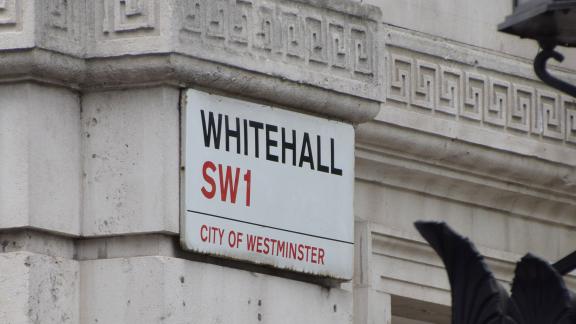e-petition 592642 relating to BTEC qualifications : parliamentary briefing
Key points
- NHS leaders are calling on the Government to urgently reconsider its decision to scrap vocational BTEC courses in health and social care or risk severely exacerbating the NHS and social care workforce crises.
- With over 105,000 vacancies in the NHS and both the volume and complexity of patient need growing, the NHS cannot afford to lose any potential nurses or midwives which this course provides the first step of training for.
- The Government must undertake a detailed impact assessment on the proposal to end provision of BTEC Nationals in health and social care considering the effect on the NHS, social care and patient safety.

BTEC Nationals in Health and Social Care
Currently, around 30,000 students are participating in a health and social care related BTEC qualifications in England, of which 14,700 are studying full time.
The BTEC facilitates direct entry into employment to support worker roles in nursing, midwifery and allied health. It also provides the foundation to move into higher education train to be a registered nurse, midwife, radiographer or occupational therapist.
The 2017 data (the latest available publicly) shows us that 7,120 people on the nurse degree training programme had completed the BTEC Nationals in health and social care. This was a higher proportion than those who had taken A-levels as the entry route to nurse degree training.
The limitations of T-levels
BTEC courses appeal to a different student group to those who pursue A-levels or T-levels. There are a broad range of learners who undertake BTECs in health and social care, but it is particularly popular with learners who value a flexible, modular approach to education.
Furthermore, 47 percent of those enrolled on the courses are from the most deprived areas in our communities and 47 percent have educational learning needs. BTEC Nationals in health and social care are a critical part of the drive to level up the country – many learners could become economically inactive if they do not achieve the higher entry requirements to undertake a T-level.
The new T-level in health does not offer a comparable alternative to the BTEC for the individual or the employer in the health and social care sectors. T-levels are open only to 16–19-year-olds and have higher entry grades than BTECs.
On a practical level the scale of employer work placement capacity required for T-levels could not be met by the NHS, even with additional funding. There are also several clinical settings where we cannot provide placements for those under 18.
Calls to Government
- At the very least, undertake a detailed impact assessment with regard to the effect of scrapping the BTEC Nationals in health and social care on the NHS and social care workforce, and on patient safety.
- Reconsider the decision to scrap BTEC Nationals in health and social care.
Suggested interventions
- Will the Minister commit to undertaking a detailed impact assessment of the effect of scrapping the BTEC Nationals in health and social care on the NHS and social care workforce, and on patient safety?
- Will the Minister agree to meet with NHS Employers (part of the NHS Confederation) to discuss the impact this policy would have on the NHS and social care workforce crisis?
- In response to the letter sent by NHS Employers to the Secretary of State for Education raising concerns about the impact of scrapping the BTEC Nationals in health and social care, the Department said it would continue to fund BTECs where there is a clear need for them – can the Minister expand on this? Does that mean the provision of the BTEC Nationals in health and social care will continue?



